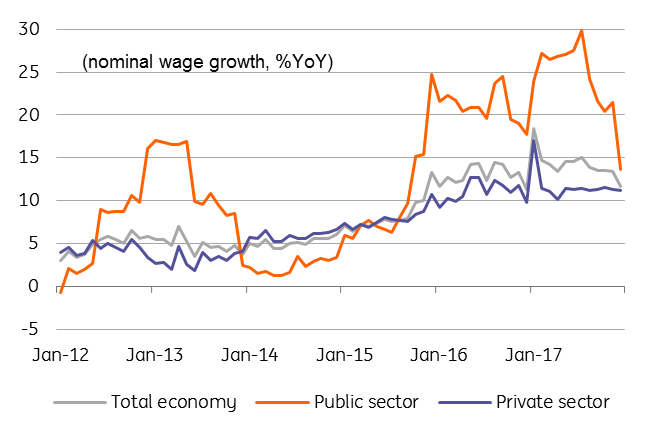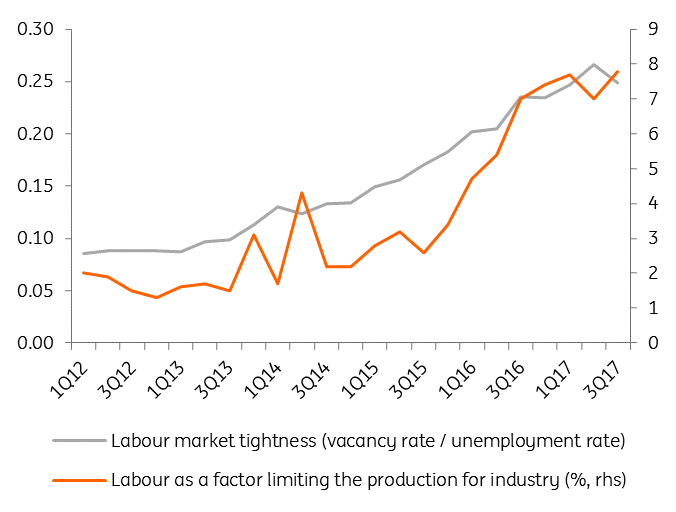Romania: Wage growth slows
Given the important base effects and budgetary constraints, we expect wage growth to slow down in 2018 but to remain in high single digits due to the tight labour market
Wages in Romania grew 11.7% YoY in December versus 13.4% in the previous month. The only sectors which saw an acceleration in annual growth in December versus the previous month were industry and education. The former has increased by 12.6% (from 11.6% in November), reflecting the ongoing labour market tightening and good economic momentum, while the latter posted 13.2% growth (from 12.5% in November) although that was almost entirely due to the base effect.
As the December data includes holiday bonuses and annual premiums, industry has been the only sector which posted a larger MoM increase versus Dec-16, likely as a reflection of the good economic sentiment (it reached post-GFC high) but mainly due to supply/demand mismatches in the labour market, which have kept upward pressure on salaries. In the public sector, it looks like generous wage increases during last year left little space for any one-off payments at the end of the year. As some sectors, particularly construction, are dealing with high seasonality, an important driver of the annual earnings increase is also the temporary layoff of employees with lower earnings.
Wage growth slowing…
NIS, ING

...but labour market will keep it under upward pressure
EC, NIS, ING

Looking ahead, for 2018 we expect wage growth to slow further due to important base effects and also budgetary constraints, as 2017 salary increases are incorporated into permanent expenditures this year. However, the labour market is expected to tighten due to cyclical factors in 2018, which will keep upward pressure on wages. Combined with the 10% increase in the net minimum wage this year, this should keep salary growth in the high single digits in 2018. On top of this, if the government manages to deliver on its promise for large pay rises in public healthcare and education, we could easily see wages go back into double-digit territory.
Download
Download snap